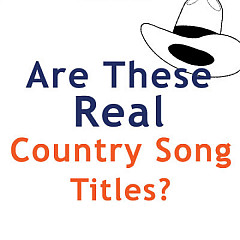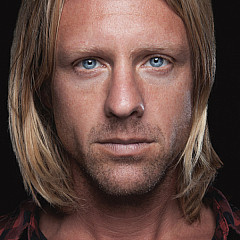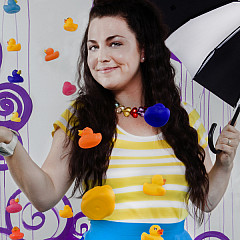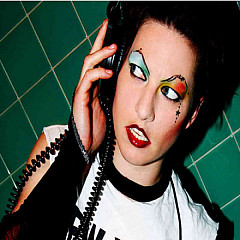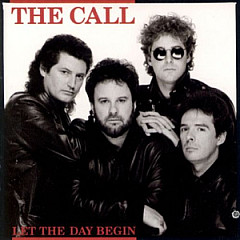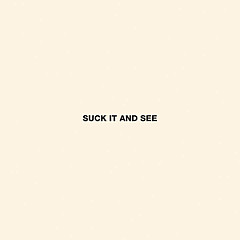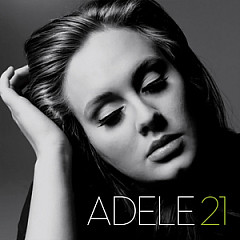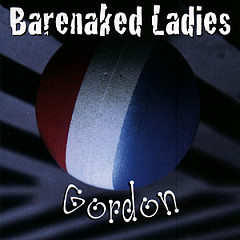 By the time she had Kesha in 1987, Pebe (pronounced "Pee-Bee") Sebert had already co-written a #1 Country hit: "Old Flames (Can't Hold A Candle To You)" by Dolly Parton in 1980. Sebert was a staff songwriter newly married to the country singer Hugh Moffatt when she wrote it with him in 1977.
By the time she had Kesha in 1987, Pebe (pronounced "Pee-Bee") Sebert had already co-written a #1 Country hit: "Old Flames (Can't Hold A Candle To You)" by Dolly Parton in 1980. Sebert was a staff songwriter newly married to the country singer Hugh Moffatt when she wrote it with him in 1977.In 1985, she was ready to become a pop star, set for her big recording session, when Moffatt ran off with their son's school teacher. Distraught, Pebe skipped the session and fell into a haze of alcohol and drugs. She was in pretty rough shape when Kesha was born, but pulled it together and got back into music in the '90s, when she worked for Curb records as a songwriter and in artist development - part of her job was helping young singers work on presentation.
Pebe's songwriting chops passed down to Kesha. They started writing together, composing Miley Cyrus' 2009 pop banger "Time Of Our Lives," and three songs for Kesha's 2010 debut album, Animal. They've had their ups and downs, with both entering rehab in 2014 - Pebe for drugs and Kesha for an eating disorder - but their professional relationship has been rock solid. Pebe is a cowriter on some of Kesha's biggest songs, including "Warrior" (2012), "Timber" (2013) and "Learn To Let Go" (2017). She and Kesha are still writing together, working on songs for Kesha's forthcoming fifth album.
Sebert has a fascinating combination of practical, technical skill (knowing how to make a lyric synch with a rhythm) and extrasensory intuition (connecting with her past lives). It's like if Clive Davis merged with Mrs. Rita. One of her key insights: You have to be a little nuts to make it in this business, and you can't teach crazy.
Pebe Sebert: Probably my favorite song that I've written with Kesha is "Spaceship," because that song represents how I feel about life.
A lot of times when you write with an artist, it's pretty much their idea and their vision, but that one's more mine. That's a great thing about writing with my daughter: We're similar enough that something that means a lot to me sometimes means a lot to her. I'm just really proud of that song and feel like it says something that I believe in.
Songfacts: And what is that?
Sebert: That this planet is a rough place to navigate and I feel like I've come from some other place. I'm more of a visitor here.
And I'm not going to run away and be scared. If the spaceship comes to take me away, I'd be kind of happy and feel like I'm going back to my people.
Kesha and I both do past-life regressions. I was like an alien from another planet that was sitting in a chaise lounge. They say I was the "raisin turd" because I looked like a cross between a turd and a raisin. And on this other planet you just sit there and you look at white screens, but you know everything and can go everywhere without moving. And they needed somebody to volunteer on Earth to help the animals, and I said, "Oh I'll do it."
I ended up coming down one of those sucky things like you have at the bank and landed on Earth as a girl on the prairie standing in front of a barbershop, and I'd never had feet before. So that was my past-life regression, which was a big influence on the song spaceship.
Songfacts: What was Kesha's past-life regression?
Sebert: She's had quite a few. We've interchanged being mother and daughter in past lives, like she was my mother in a past life. She felt like she died in a fire or of a fever, and I had separately done a past-life regression where I was the child of someone who died maybe in the Middle Ages. I just roamed the alleys of some large European city and ended up being saved by this pack of dogs. They protected me and provided for me. I would go with them and they knew where to get food and they kept me warm.
So we both had a similar vision. She had the vision that she died of this fever and left me, and I had the vision of being left and how I lived after she died.
And then when she was born, she looked up at me, and I literally heard in my head, I heard her say, "There you are." Like we were reunited in this life as mother and daughter again.
So, we're very, very ethereal beings, both of us. We're both Pisces. We're too much alike for our own good sometimes. We fight because we're so similar.
Songfacts: This ethereal mindset, are there other songs where we can hear it come into play?
Sebert: The song "Learn To Let Go," although that's more of a life lesson. It's a "just got out of rehab" type song: You've got to learn to let go, you can't hold on to the past.
As far as ethereal goes, "Godzilla." I wrote that with Nathan Chapman, who was Taylor Swift's original producer, and with an artist named Claire Wilkinson. The three of us wrote "Godzilla," which is ethereal and quirky in a different way.
Kesha's not a writer on that, but a lot of things we write are pretty quirky, like "Cannibal." We tend to go a little further out there than most other people because both of us are that far out there.
Songfacts: Godzilla has been presented in so many ways, but I've never heard anybody falling in love with Godzilla before.
Sebert: Well, the point of that song to me is just judgment. Because he looks like Godzilla everybody assumes he's going to be bad. It could be a metaphor for somebody being gay or being another race. I recently spent time with some people who were mad that their son was dating someone who was Asian. So "Godzilla" could represent anything that scares people.
 Vintage photo of Pebe Sebert
Vintage photo of Pebe SebertSongfacts: You mentioned "Cannibal," which is a very interesting song. You really push the metaphor. There's a point in the song where you wonder if she's really eating this guy.
Sebert: Well, at that point in time she was a hot little pop star who could fuck with guys' heads in any way she chose to. She's always been the girl who's trying to give guys what guys have always done to women. I feel like that is Kesha in a nutshell. Like, if you're going to talk about us like we're objects and talk about how you can have any girl you want, like the rock stars have always done, she's the girl who is going to take that same attitude.
It was fun. No women had been as nasty and vile as men, so she was trying to be just as nasty as men have always been, but in a funny way, not in a gross way, because she wasn't really doing any of that.
Songfacts: How much of that is a character?
Sebert: It's almost all a character. It really is. But there's elements of truth to all that.
I remember hearing about Kiss. A friend of mine ran one of the big rock-star hotels back in the '80s, and he said Kiss would come in with their moms and their poodles. They all sat and read books during the day with their poodles on their laps, and then they plastered on their gear and went out and acted like crazy people.
It never dawned on me at that point in my life that that's how it really was, but it really is just a character. Of course, you want to have a character that has enough similarity to who you are that it's not a stretch. It would be a stretch for Kesha to behave like the girl from the prom that's always perfect. That would be a hard role for her because that's just not who she is or who she wants to be.
I used to develop female artists over at Curb records. I worked at Curb Music for years. I would bring these girls in and try to turn them into artists, which is what I felt I had to do because it's not good enough to just have a voice. You have to have the voice, you have to have the looks, but even more important than both of those are the personality. Just to have that swag. It's just a thing that people either have or they don't, and part of it is being a little crazy. Sane people can't act as crazy as you need to be to be a good rock star. You've got to actually be a little crazy.
When you're developing an artist, you have to look into who they really are. If somebody really is a good girl, you've got to somehow make that cool and different. You have to be creative and do it in a way that somebody else hasn't already done.
Songfacts: Who are some of these artists you developed at Curb?
Sebert: None of the people I worked with at Curb ever really took off. There was a girl named Ashley Wilson that I worked with for years, and actually one of the songs we wrote was called "Good Girl." This was around 1999. We put this whole package together of her and did a showcase, and "Good Girl" was one of the songs.
For some reason, nobody jumped. It's like taking a piece of art to auction. If you take a Monet, of course, everybody's going to bid on that. They don't even need to look at it. But if you take something that nobody knows, are they going to jump on or not? That's what I feel like when working with a new artist.
Over the years, I wrote with Sara Evans, and back in the day, Kathy Mattea was my demo singer. Jamie O'Neal was a demo singer for me for years and then she got her own deal. Here in Nashville, the old-fashioned way was to write songs not exclusively with the artists, but it's not like that today. I feel like it's kind of pointless to write songs with just other songwriters because the chances of getting something cut that you don't have an artist in the room on are pretty minimal. But back in the day when we did that, we always got demo singers to sing, and they were the up-and-coming artists.
Songfacts: You talked about how challenging it is to break a new artist, but it happened with Kesha in a big way. So, what was it with Kesha that made it so different than, say, with Ashley?
Sebert: First of all, Kesha's nuts. Second of all, she's my daughter. We're not really nuts, but we're very quirky and we have very different belief systems from most of the people living in the world today. We are not very encumbered by social, societal rules.
I'm a big hippie, so my kids are big hippies and nobody taught them how to act right. They can do it if they want to. Kesha's learned how to act right, but she definitely didn't learn it from me because that wasn't the way I lived. I was like, "Go in the other direction." I was a child of the '60s and '70s who wanted no part of doing the right thing or feeling like you had to get married to have a child. I didn't want any part of any of that.
So she was raised to do whatever she wanted to do as long as it didn't hurt somebody else. But we definitely had a moral code.
Songfacts: You've worked with some other very famous female musicians at the beginning of their careers, one being Ariana Grande. Can you talk about that?
Sebert: I was like the first person that ever wrote with her. Her acting manager was my son's acting manager. So this lady, Jen Merlino, asked if I would be interested in working with Ariana, who was going to try to put a record out.
She was about 17 and had never written a song. I went over and met with her and her mom a few times and we talked about songs and stuff. I decided the best thing to do was to get her with some track guys and the four of us go into a studio together. So the first eight or nine months of her writing career were all us.
I lived in Nashville so I would work with her when I was there, but then the people I set her up with, like Matt Squire, worked with her more and brought in other writers.
Songfacts: You wrote the song "Pink Champagne" with her, right?
Sebert: Yes. "Pink Champagne." And there's one called "Voodoo Love," There's one called "La Vie En Rose." A bunch of these have leaked different places.
Songfacts: Let's focus on "Pink Champagne" so we can get a sense for what it was like writing with her. How you present it and what you're trying to get across.
Sebert: I knew Ariana well enough because I feel like it's all about trying to know the person to know what's going to be a real look for them. It's like getting a person ready for a photo shoot. Like, what's going to be a good look for her?
She was 17 and portraying this kind of goody-two-shoes on the Nickelodeon series [Victorious]. We didn't want to go too far from that image at that age, and she was still on the series.
So, that particular day, the two other writers, Damon Sharpe and Matt Squire, came in, and Ariana and I had already talked through some things. I knew her family background, being from New York and from Florida. You almost have to have a little movie that you're writing in your head. Like, here's Ariana and the movie is "Pink Champagne," which is just a little dangerous, but it would be acceptable for a 17- or 18-year-old to have a sip of pink champagne. It's not like drinking vodka under the bridge, it's a sip of pink champagne.
We tried to start it off with the whole idea of how hard she worked, because she was a very hardworking young girl. We went off reality: "Every day I'm grindin'." Thank goodness I had two really good track people that kept the feel really bouncy and really cool and young. We played it real safe with that song because it was literally the first time she was in the studio to write with people making a track.
But it's "first done, first off." That's the old saying about writing. When you're the first co-writes on a record, when the record takes two years, you're probably going to be the first dropped. Especially when you've got a young girl like Ariana, two years later, "Pink Champagne" is going to seem a little too bubblegum, which is what ended up happening. That and "Voodoo Love" were on the record all the way up to the pre-sale, and then they were just trying to get her a little more street cred with some stuff that didn't feel quite as young.
It always takes a while to get a record out, so it was just too young for her by the time the record actually came out. But we were really thrilled that day. We loved the chorus, and I'd never heard Ari sing in the studio, and I was floored. I'd heard her sing at her house, but I didn't have a sense of what a phenomenal voice she had until that day in the studio. It was just so easy for her to do anything with her voice. I had never heard anybody sing as good as her in my 35 years in the music business. I was floored with her vocal ability.
And she was very much a little businesswoman at 17, 18 years old. She was early to bed, go to work everyday, interviews...
 Songfacts: Did you say the track was being composed as you were putting the lyrics and topline on it?
Songfacts: Did you say the track was being composed as you were putting the lyrics and topline on it?Sebert: Yeah, that's generally how we write with all the pop artists I work with. The one exception would be "Your Love Is My Drug." Kesha came home and we just started writing that here at home to an empty track. So we did all the topline here to a little mono track.
But usually in the studio, the top liners are working on the topline and the track guy is building the track, so it's all happening at once. Usually it will go out after about six hours, hopefully with a finished song. It may only have scratch vocals and it may not be completely finished, but the day we worked on "Pink Champagne," we left with a song.
Songfacts: So, with the exception of "Your Love Is My Drug," when you're in a studio with Kesha are producers playing different beats for her and waiting for one to connect?
Sebert: Well, that's one method, but the people Kesha and I like to work with the best are guys like Drew Pearson, who is more of an old-fashioned songwriter. He's the guy we wrote "Spaceship" and "Boogie Feet" with. He can do the tracking but he can also sit back and just be a regular writer with a guitar.
A lot of times, Kesha and I are inspired by something quirky, so maybe we'll be sitting in the room and he'll be doodling around looking for a sound, and some weird sound will come up and we'll go, "Keep that!" and that'll be the start of the song. Then I'll ask for the most ridiculous instruments. "Put banjo on it! Put tuba!"
A lot of times those things actually sound great, but nobody would have ever thought to put banjo on a pop song a few years ago, but I would always scream for banjo because nobody else was doing it, and I thought, "I love banjo, and let's do something nobody else is doing." That was how "Spaceship" started.
To me it's about being around people you really enjoy being with. We'll sit around and try to get a start, but the start can come from anywhere. A lot of times it's just a sound. Kesha and I will jump on a sound and we'll both go, "Oh, that's it," at the same time.
We write with a guy named Stuart Crichton, and he's learned in the time he's worked with us to never give us what he would give to anybody else. He knows we want the weirdest, most out-there stuff. He used to fight to not put banjo or not put tuba or bagpipes, and he doesn't even argue anymore about it.
Songfacts: You have demos ready when you come in though, right?
Sebert: Oh, no. We walk in cold with our bodies and our computers.
Songfacts: But didn't I see a video of you and Kesha working together on "Warrior," sitting at a piano and putting the song together?
Sebert: That was when we were rewriting and rewriting and rewriting a lyric. But the initial inspiration where you come up with something you love happens in the studio, literally with coffee, chocolate and computers. You sit around in the room until you get that little magical bit. That happened on "Boogie Feet." "Spaceship" was one of those. Somewhere over the period of six hours we got some portion of "Spaceship."
You leave with that, then you sit over a computer rewriting and rewriting and rewriting. The one you saw in the video was something we were doing with Max Martin, and Max Martin is extremely particular about lyrics and how they hit, and rhythms. So that's like trying to solve a crossword puzzle.
Kesha and I are not generally that particular, but since that song was with Max Martin, he wanted the rhythms a certain way, so we would turn in lyrics, and he'd go, "No, that rhythm is wrong here." And when your rhythm is wrong, the whole lyric is going to be wrong. And you can't just change the rhythm because that's going to make the whole lyric feel wrong. So we'd have to go rewrite the whole lyric. That was just that one particular song, "Warrior." We rewrote that for like six months over and over and over.
Songfacts: Sounds excruciating.
Sebert: We just kept coming up with different approaches and different ways to come at it. Max wouldn't like the approach, and then we'd get the right approach and we'd have the wrong rhythm. And he really likes the sound a certain way at the end of sentences, so it's just a lot of things. A lot of moving parts to satisfy to actually get a decent lyric.
Songfacts: Is there a banjo on "Timber"?
Sebert: I was not involved in the track production on that. There might be. I know there's banjo on "Spaceship" and "Learn To Let Go."
Songfacts: What was your role on "Timber"?
Sebert: Kesha and I wrote a lot of the verse and chorus lyrics. I took her into the studio and produced her vocals here in Nashville at Blackbird Studios. That was pretty much our role. Not everything we wrote ended up in the song, which it doesn't always, especially if you have 60 other people working on the song. I have no idea who did what other than what we did.
Songfacts: "Timber" is credited to Pitbull featuring Kesha, but it seems like it should be the other way around because when you break it down, she's doing most of the work on the track. Pitbull just shows up in a few spots and raps.
Sebert: That's because it was his idea and the whole thing originated in his camp. That's one of the things that bothers me about the way music is today. I'll be listening to the radio with my youngest son, and I'll go, "Who is this?" And he'll say the name of the DJ, even though there's a girl singing. So it's credited to the DJ like the girl doesn't matter.
That's not the way it used to be. If you were a songwriter, if three people walked in the room and wrote a song, three people split the song three ways - the end. If you weren't actually in that room, you weren't a writer, but that's all changed now. Now, if you're the one in charge of a song and you have big names, maybe you didn't do anything on the song but you still are going to get a piece because of whatever your role is. There's all kinds of ways people get on songs that haven't written any songs. That's definitely happened to me. I can't be more specific, but it's very insulting to the way songwriting was for me.
Songfacts: You said that the way you write songs these days is with coffee, chocolate, and computers. What was it like in the '80s?
Sebert: It was basically the same, but there were no computers. I'd come in with a rhyming dictionary and a cassette player with a few empty cassettes. At least in Nashville, everybody went out and grabbed a sandwich in the middle. Sessions started at 10 a.m. and by noon you'd be ready to hit your head against the wall so you'd run out and get a sandwich and get some more coffee.
Most people were wrapping up by 3 because, at least for me, I had kids to pick up. But 10-3 was pretty standard writing time. There were days in the early '80s when it was more like cocaine and alcohol, but that was early '80s LA where it was party time.
Songfacts: It sounds like they were disciplined in Nashville.
Sebert: Yeah, Nashville was always pretty much 10-3. People don't start writing songs at 6 p.m. in Nashville.
Songfacts: It's crazy to think that you could be writing country songs in the '70s and be writing hit pop songs for very young singers today, and do it both successfully. What's the crossover?
Sebert: The crossover, 100 percent, is Kesha. And then also my son Louie, who goes by Sage. When you work with your own children and you are writing for the current market, they keep you in line. With Kesha, for instance, in 2010 I'd walk in and I'd throw out a melody or chord structure, and she'd be like, "That sucks. It sounds like the '80s. Nobody wants to hear that shit."
So I had that advantage that some crusty old country writer who didn't have their child in the room and have a super-honest relationship with wouldn't have gotten. They would have gotten, "Yeah, we love what you're doing. We'll call you."
I was used to the real structured country phrasing - the way you hit things and the way you say words. The emphasis would be on the correct syllable. And all of a sudden, Kesha's singing something like "FOR-tunately" or "unfor-TUNATE-ly," just putting the emphasis in the wrong place on a word, which was cool and different but it took me the longest time to get used to doing things like that.
People squeeze words into sentences that you would have never done before, and it took my brain a while to understand that the way we used to do it is not the way anybody does anything anymore, and I better just shut up and listen. Not say, "Oh, I'm the great old songwriter who you should listen to." I need to be the student. I'm going to learn from the 20-year-old. It's always a learning experience and I always have to stay really teachable or else I wouldn't still be doing it.
Songfacts: You don't see a lot of multi-generational songwriting, but you've managed to make it work quite well.
Sebert: When I was working with Sage, he was the same thing. He'd be like, "Mom, that's so old. So backwards. Nobody cares about that. This is what we should do." He'd play me Lil Peep and I'd be like, "That's the worst stuff ever." But that's what people want to hear.
There are certain things I can't do. I'm not going to write a good rap song. Kesha and I fooled around and wrote like "Kesha rap," but genres like Lil Peep, I can't do that.
I've just tried to stay as teachable as I can and work on songs I can relate to. If I'm in the room, hopefully the people there understand what I'm there for. I'm there for quirky. I'm there for super quirky, different lyrics. I have really out-there ideas - I'm not there to write a Beyoncé song that's super cool and sexy. That's not going to work for me.
 Songfacts: Your song "Vampire" has this very retro vibe, of course, because it's from 1985. It's a really interesting lyric. Can you talk about writing that song?
Songfacts: Your song "Vampire" has this very retro vibe, of course, because it's from 1985. It's a really interesting lyric. Can you talk about writing that song?So, I've always been fascinated with all of that stuff, and we were talking about vampires, and the whole idea of not being scared of a vampire and looking forward to that.
Part of it, for me, is that I've always felt out-of-the-loop, like, a little too odd to fit in, so it was almost from the perspective of not finding anyone here I could connect with, so I'm going to connect with this dead vampire. That's going to be my special guy.
I have another song that we're going to put out pretty soon from the '80s called "1945." It's a girl in a punk bar in love with this like guy that doesn't seem like he fits in the punk bar. It's all very Twilight Zone. I've always been fascinated with the old Twilight Zone and Alfred Hitchcock, so a lot of it has that vibe where something odd is going to happen.
December 3, 2021
Photos courtesy of Pebe Sebert
More Songwriter Interviews


